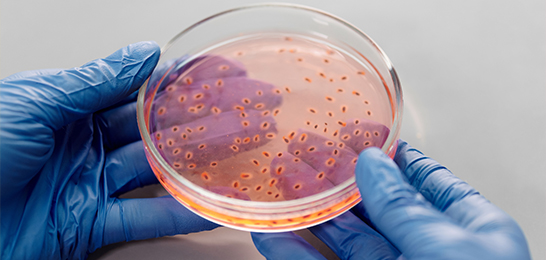Published Date: Aug 01 2023
In the realm of modern biotechnology, advancements continue to reshape the landscape of scientific research, pharmaceuticals, and industrial processes. One such breakthrough is the emergence of recombinant trypsin, a cutting-edge enzyme that is transforming traditional protein digestion methods. In this blog post, we delve into the world of recombinant trypsin, its significance, and its potential to revolutionize various sectors.
What is Recombinant Trypsin?
Recombinant trypsin is a genetically engineered form of the trypsin enzyme, which plays a pivotal role in breaking down proteins into smaller peptides. Trypsin has been a staple in laboratories and industries for protein analysis, cell culture, and biopharmaceutical production. However, the conventional source of trypsin, often extracted from animal pancreases, has limitations in terms of purity, availability, and batch-to-batch consistency. Recombinant trypsin overcomes these challenges by being produced through genetic engineering techniques, ensuring high purity and a reliable supply.
Advantages of Recombinant Trypsin
Traditional trypsin extraction methods often yield impurities, affecting experimental results. Recombinant trypsin, produced through controlled fermentation processes, boasts exceptional purity and consistency, leading to reproducible outcomes in various applications. Recombinant trypsin's genetic engineering allows for modifications that enhance its stability, specificity, and performance under different conditions. This adaptability ensures optimal enzyme activity tailored to specific experimental needs. As traditional trypsin is sourced from animal pancreases, its production raises ethical concerns and can result in supply chain issues. Recombinant trypsin eliminates these concerns, offering a cruelty-free and sustainable alternative. Traditional trypsin extraction is susceptible to factors like animal health and availability, leading to potential supply disruptions. Recombinant trypsin is produced in controlled environments, ensuring a stable and continuous supply for research and industries.
Applications of Recombinant Trypsin
Recombinant trypsin is extensively used in cell culture processes, aiding in the detachment of adherent cells from culture surfaces. Its high purity reduces the risk of contaminating cell cultures and improves cell viability, ensuring reliable results. In proteomics research, precise protein digestion is crucial. Recombinant trypsin's consistent performance allows researchers to obtain accurate peptide maps and sequence information, enabling advancements in understanding protein structures and functions. Recombinant trypsin's customizable properties make it an ideal candidate for optimizing protein production processes in biopharmaceuticals. It ensures efficient protein cleavage during the production of therapeutic proteins like monoclonal antibodies.
The advent of recombinant trypsin represents a significant stride in biotechnology. Its purity, consistency, and ethical production align with the growing demand for sustainable and reliable enzyme sources. As research and industries continue to harness its potential, recombinant trypsin will likely pave the way for more accurate experimental results, innovative biopharmaceutical development, and a deeper understanding of cellular processes. The era of recombinant trypsin is upon us, promising a future fueled by precision, ethics, and progress.







